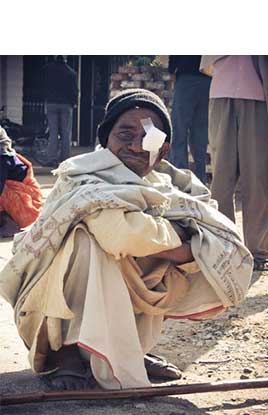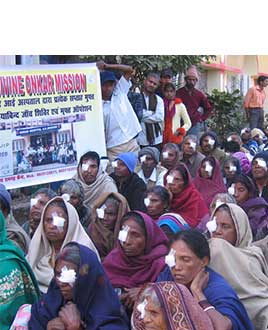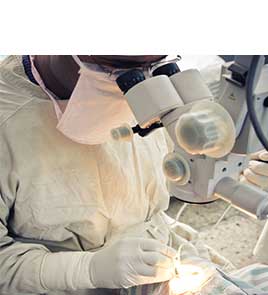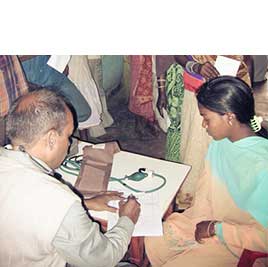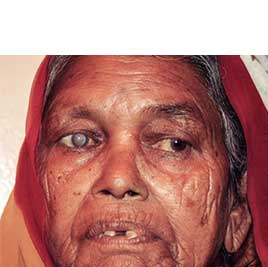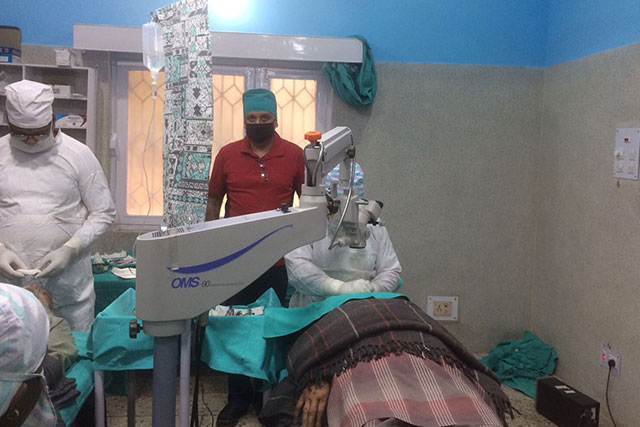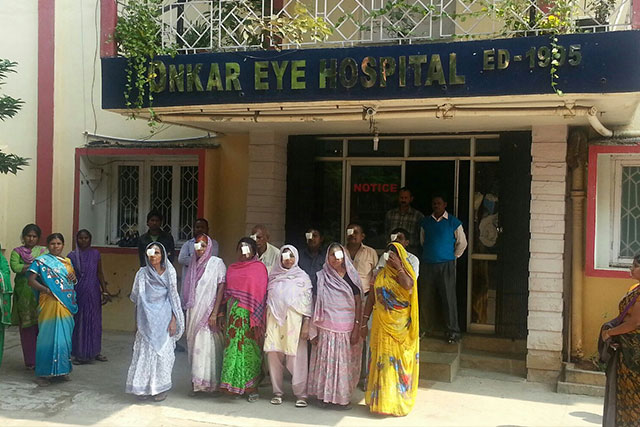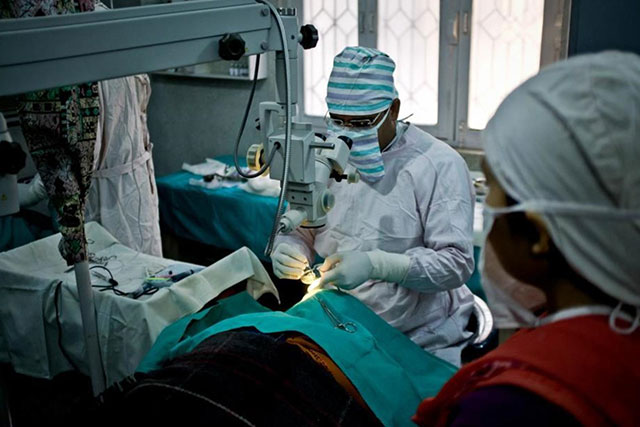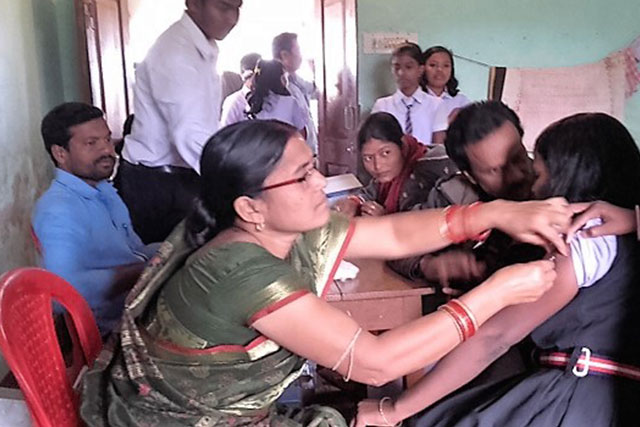Blindness
India has a large number of blind people requiring sight-restoring cataract surgery with more than 80% of all blindness in India due to Cataracts in one or both eyes. The WHO/NPCB (National Programme for Control of Blindness) survey has shown that there is a backlog of over 22 million blind eyes (12 million blind people) in India, and 80.1% of these are blind due to cataract. The annual incidence of cataract blindness is about 3.8 million. The present annual level of performance is in the order of about 1.6-1.9 million cataract operations.
A cataract is a clouding of part of your eye called the lens which drastically blurs vision. Blindness due to cataract presents an enormous problem in India not only in terms of human morbidity but also in terms of economic loss and social burden.
Eye medical camps where set up by the Divine Onkar Mission in the remotest areas of Jharkhand, which is a region that is home to a very poor marginalized population, living at subsistence level with little or no contact with public services. Together with corporate sponsors a typical camp would be set up for 7 days and would screen and treat up to 100 villagers depending on the location.
Patient care would include education, food, warm clothing and free medicine to prevent infection. The most important part of the whole service of the eye medical camps was relieving the villagers of their fears of the operation. This was achieved by educating villagers of the benefits, procedures and the importance of hygiene.
"Our goal is to stamp out needless blindness in India. The gift of sight allows these people the opportunity to find work and make a living to support themselves and their families."
Onkar Eye Hospital
After many months of setting up eye camps it became quickly apparent that there was a drastic need for a specialist eye hospital in Jharkhand. The nearest general hospital and specialist eye hospital is over 40 km away in the city of Ranchi. These hospitals charge for all tests, procedures, medicine and after care. Traveling 40km and paying for treatment is just not an option for the villagers in remote areas.
The eye camps were proving not to be the ideal environment to treat more complicated eye conditions, that had frequently have been identified by the Physicians at the camp. Proper equipped operating facilities where needed with room and facilities for longer post-operative care.
In January 1995 after many months of fund raising the Onkar Eye Hospital in Jharkhand was officially opened. Two ambulances were purchased for emergencies and to transporting patients who are too infirm to travel. The Onkar Eye Hospital now routinely treats a wide range of eye conditions that include Cataracts, eye infections, Corneal Grafts, Glaucoma and Diabetic Retinopathy.
The Operation
Multiple of thirty minutes’ cataract operations can be done by the Onkar Eye hospital on a scheduled operating day. The hospital aims to offer on average 55 cataract eye operations each weekend. The assembly-line approach that we have adopted is most evident in the operating room, where each surgeon works two tables, one for the patient having surgery, the other for a patient being prepped. Surgeons typically work 12-hour days, and the fastest can perform up to 100 surgeries in a day.
All patients and their accompanying support are provided free board and stay overnight. The rationale for the overnight stay requirement, is to ensure the reduction of risk of infection. As well as giving our staff an opportunity to educate the patients on proper eye hygiene and aftercare.
Once the procedure has been carried out the patients have full after care for one year. The patients are discharged from the hospital with appropriate eye protection, warm clothes and follow up appointments.
Other Hospital Services
The Onkar hospital provides a GP service for the local community that includes performing tests for Diabetes and Blood Pressure checks.
A limited accident and emergency service is also available for local villagers who can’t afford to travel the 40km to the nearest government hospital, or pay medical fees.
In medical emergencies there is often the urgent need for blood transfusions. We have made it a priority to setup a register of local blood donors in Jharkhand. Medical staff actively travel to villages and recruit blood donors. Villagers are educated on the need for blood donations and reassured that there is no harm or threat to the donor.
The Future
The facilities at the hospital are streamlined with very dedicated and efficient staff. However, running costs are extremely high; the day-to-day running of clinics, replenishment of consumables and training of staff being high on the list of priority for fund allocation. Continuous fund raising is vital to ensure the hospital can continue to treat patients and expand its services.
As part of our ongoing strategy to expand the service we provide, we will aim to treat more complicated eye conditions and conduct laser eye surgery. The Retinal Laser machine is a complex and expensive piece of equipment costing in excess of £40,000 which we are hoping to secure with support from our donor community.
Our goal is to stamp out needless blindness in India. The gift of sight allows these people the opportunity to find work and make a living to support themselves and their families.

